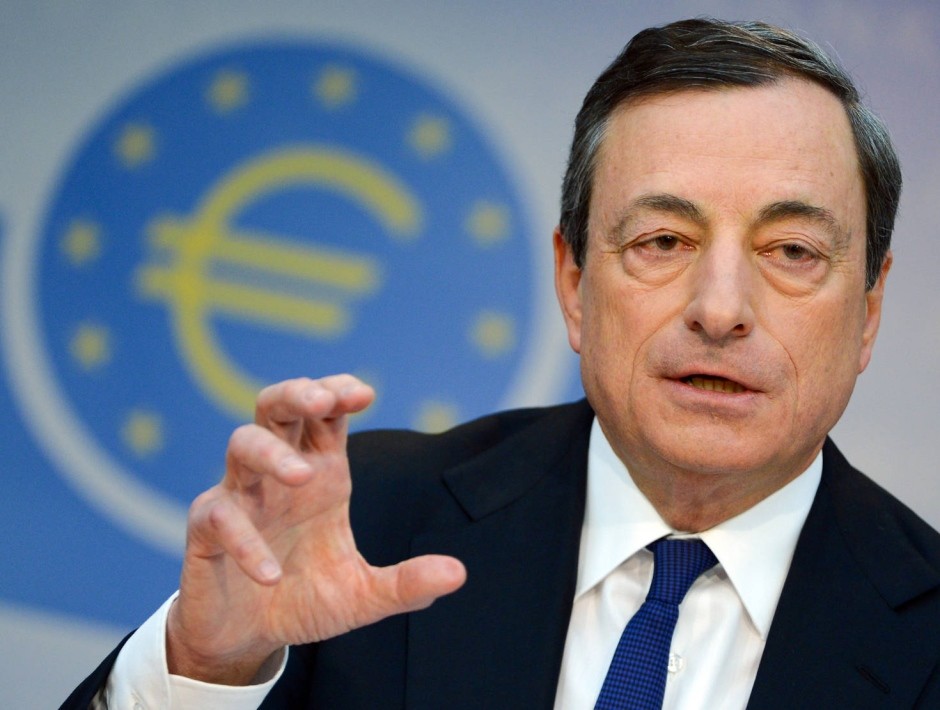Mario Draghi, European Central Bank (ECB) president Wednesday defended the policy of quantitative easing bond-buying, but gave investors little clue as to future monetary policy ahead of a much-anticipated speech at Jackson Hole on Friday.
Speaking in Lindau, Germany, Draghi said that quantitative easing (QE) is more effective than some economists credit because of its role in helping to free up liquidity.
“Central banks are not powerless at the effective lower bound” of interest rates, said Draghi.
“Provided they are willing to explore non-standard policy avenues, they can continue pursuing their price stability mandates even in the most adverse circumstances.”
Investors are nervously awaiting another speech by Draghi on Friday at the Jackson Hole central banking forum in Wyoming, hosted by the Federal Reserve, for indications of future policy.
The forum, held every year since 1978, is commonly used by central bankers to discuss major monetary policy themes, often with market-moving consequences.
Quantitative easing is likely to be the hot topic at the forum this year. This 2017 vintage may come to be seen as “the moment where we move from an age of quantitative easing (QE) to that quantitative tightening (QT), which sees a smooth reduction of gilt buying from the world’s key central banks,” said Kully Samra, UK managing director at Charles Schwab.

The Federal Reserve, which is the furthest along the path to so-called normalisation of the major central banks, is considering when to halt the reinvestment of proceeds from maturing bonds, removing its stimulus from the market. Janet Yellen is due to speak on Friday as well.
At the same time the ECB must decide in the coming months on the pace and scale of its asset purchases. The central bank is currently scheduled to buy around €60bn per month in bonds from around the Eurozone until the December cut-off date.
However, ECB policymakers have also expressed disquiet over the strength of the euro, which has been boosted by the prospect of monetary tightening, albeit gradual in pace, as well as a strong economy.
David Owen, chief European financial economist at Jefferies, said: “For the ECB it is clear that with the recovery continuing to broaden out they will move to taper in 2018, and will be less focused on the exchange rate than many in the markets.”
Draghi on Wednesday set the scene for a very gradual adjustment to the QE stimulus, saying that quantitative easing has been more successful than some economists expected because of the inadequacy of models before the crisis.
Pre-crisis models did not take into account “financial frictions” which made markets less efficient, he said. The “sudden shock” of the financial crisis a decade ago made “visible the flaws in our policy frameworks”, Draghi said.
“We must be aware of the gaps that still remain in our knowledge,” he added.







